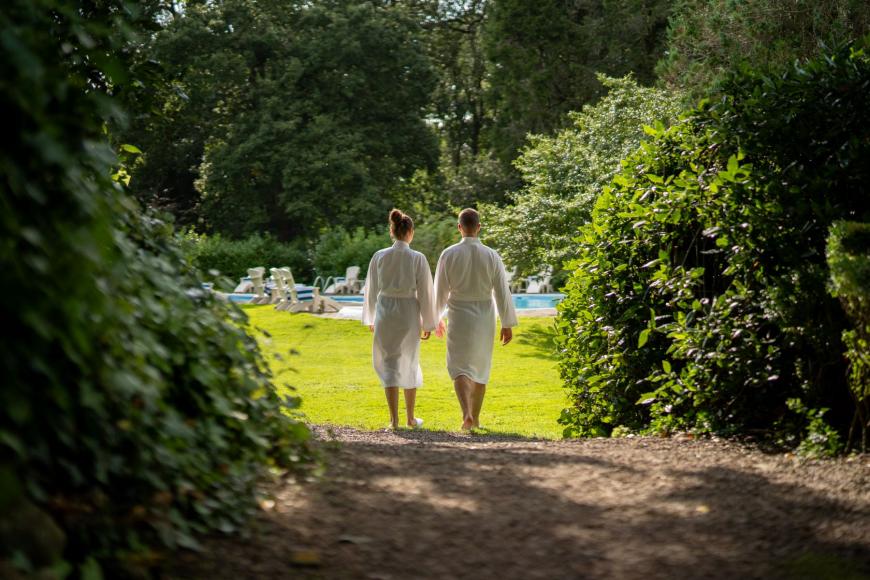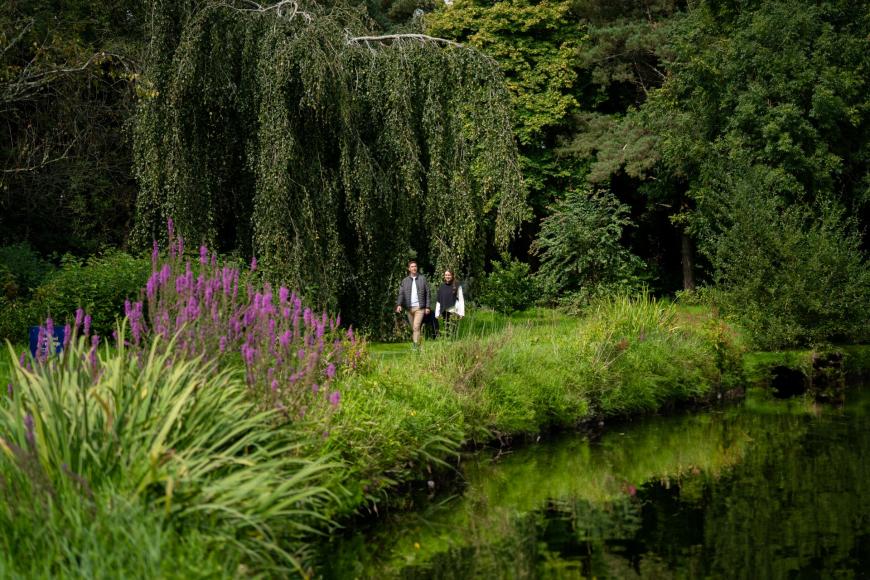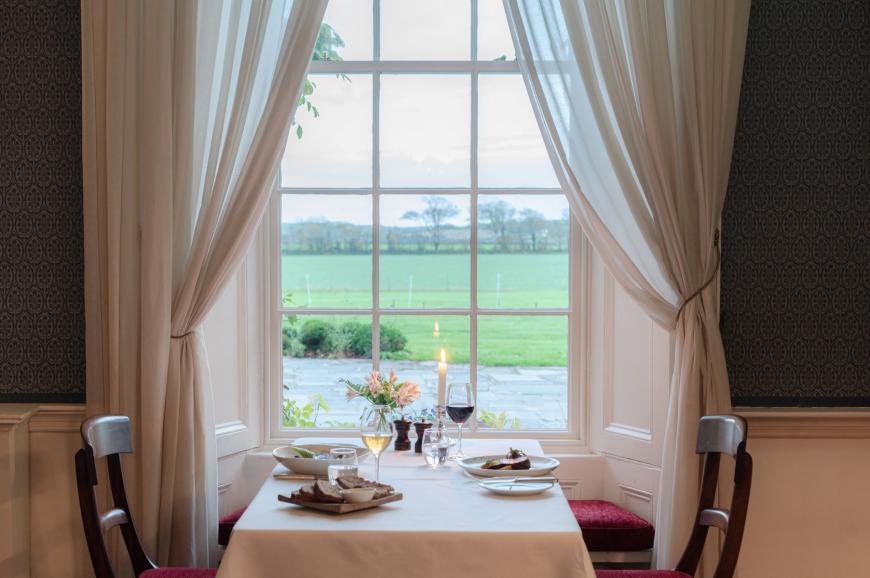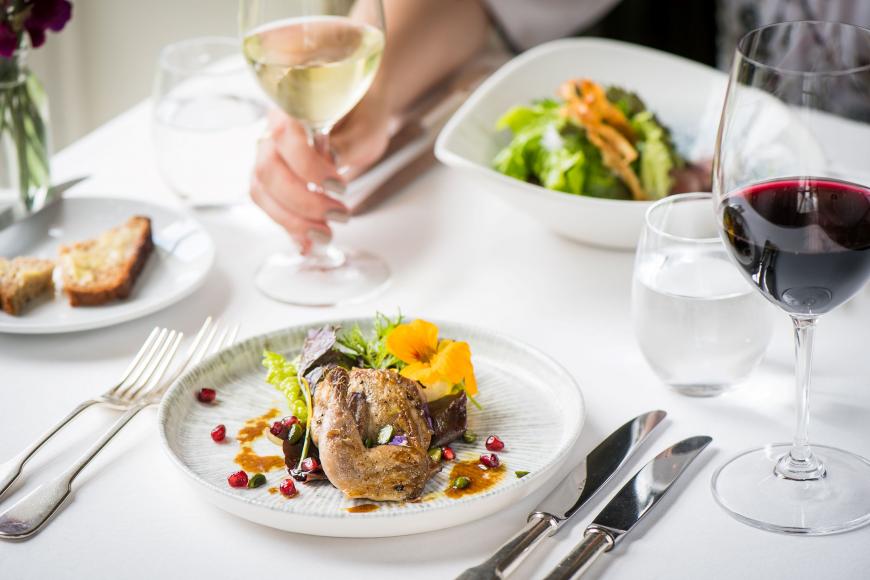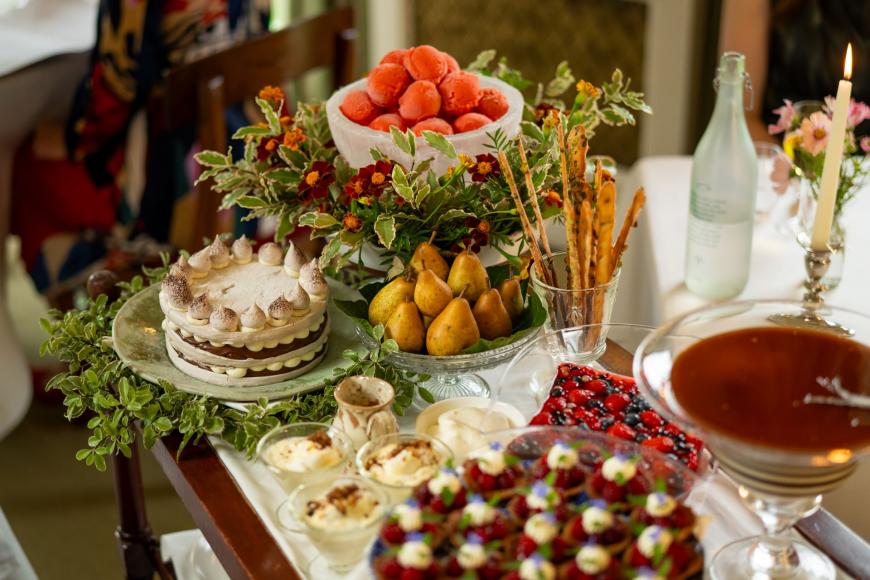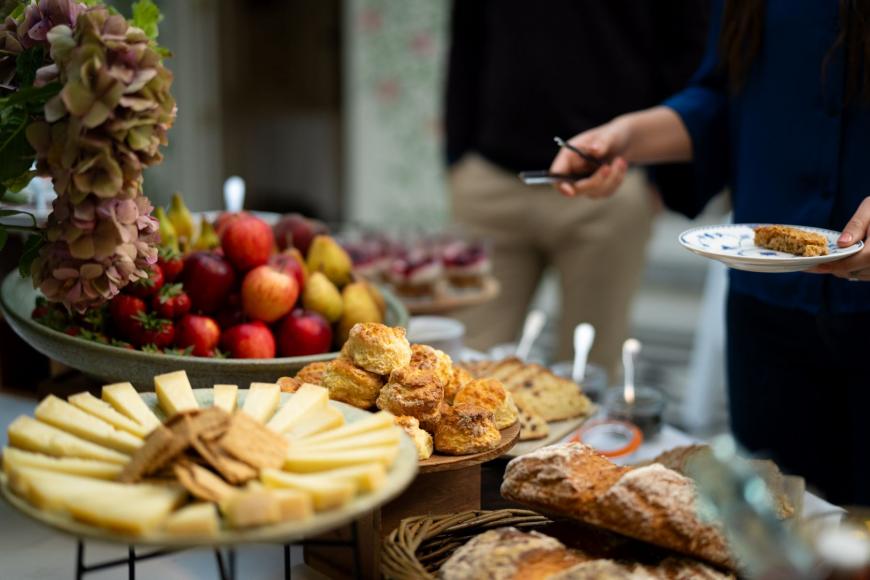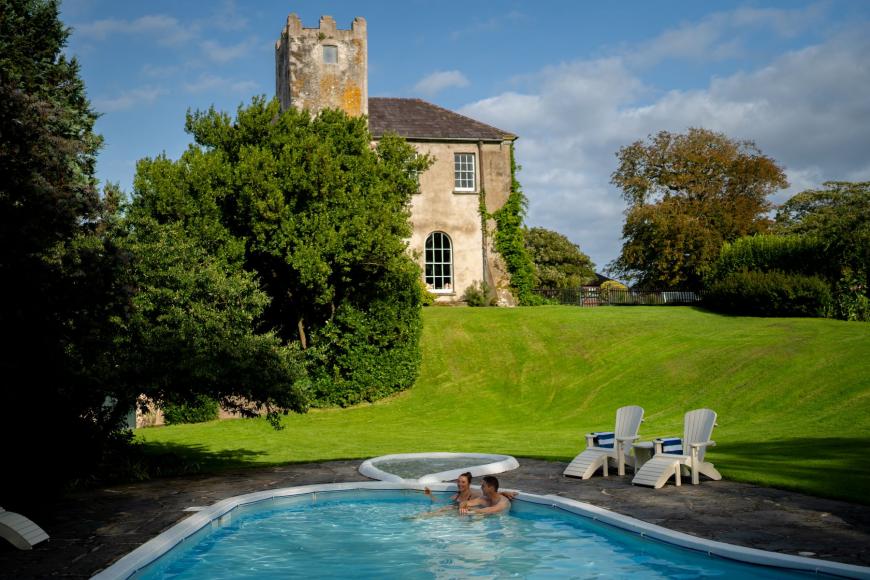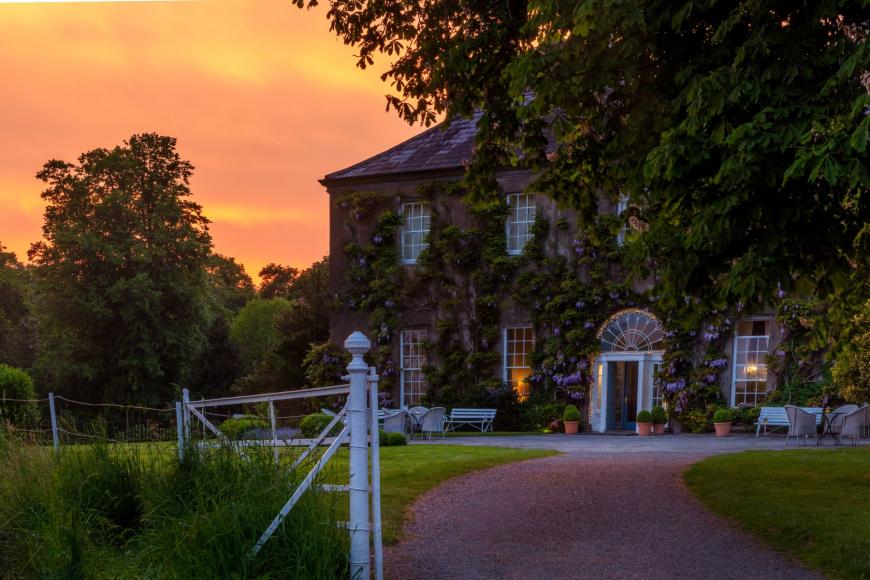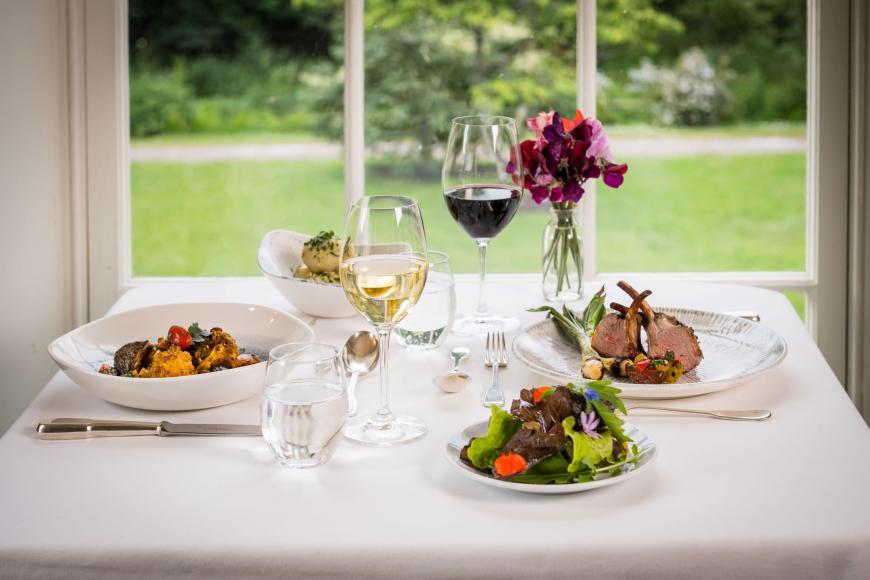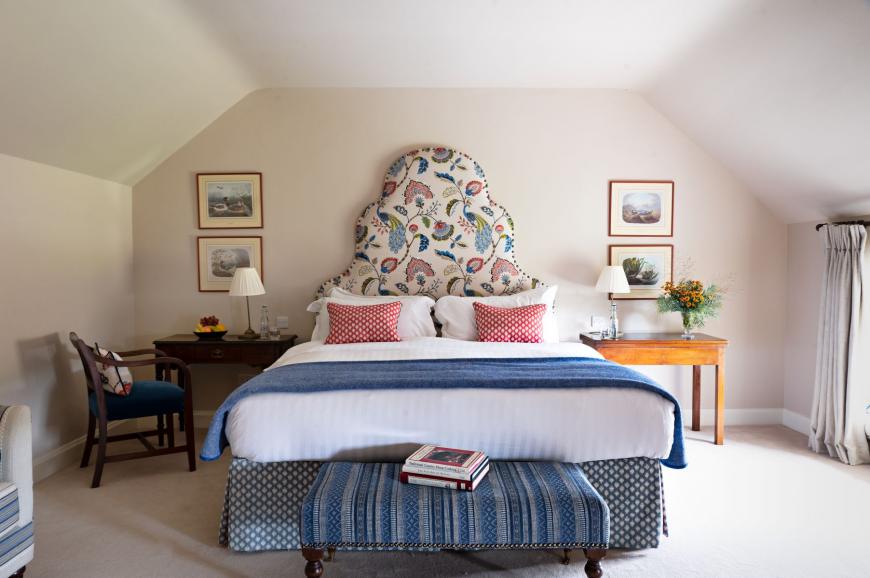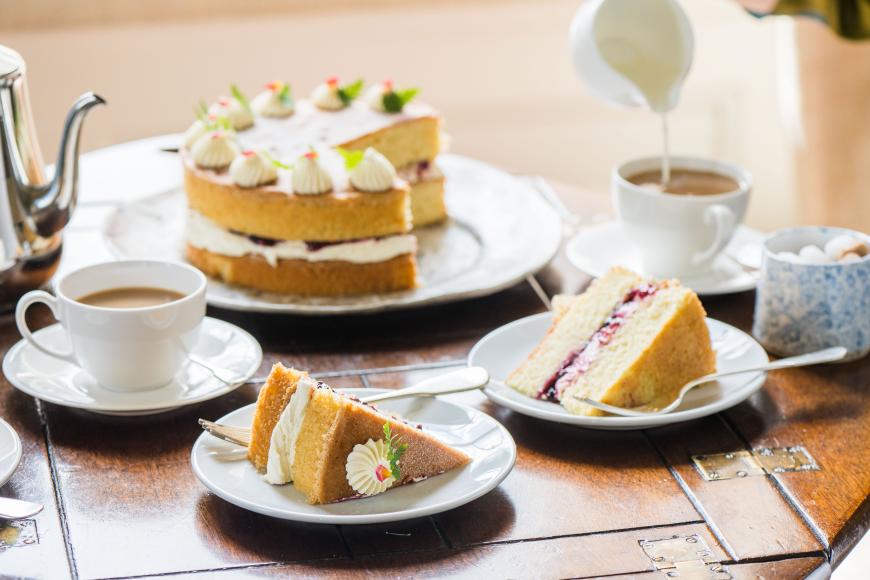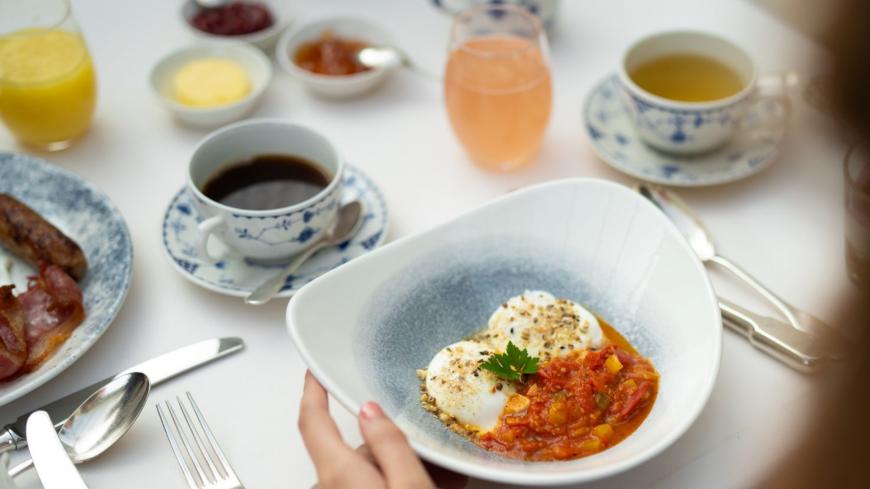Ireland’s most famous country house, Ballymaloe was one of the first to open its doors to guests when Myrtle and her husband, the late Ivan Allen, opened The Yeats Room restaurant in 1964.
Accommodation followed in 1967 and since then a unique network of family enterprises has developed around Ballymaloe House - including not only the farmlands and gardens that supply so much of the kitchen produce, but also a craft and kitchenware shop, companies producing chutneys, sauces, soups and ready meals, and Darina Allen’s internationally acclaimed cookery school.
Yet, despite the fame, Ballymaloe is still most remarkable for its unspoilt charm: Myrtle received international recognition for a lifetime’s work “recapturing forgotten flavours, and preserving those that may soon die”- and her philosophy has been passed down to her children and their families, many of whom are working at Ballymaloe or in related businesses. The current General Manager is not a family member, but the ethos is unchanged.
The house, modestly described as “a large family farmhouse”, is indeed at the centre of the family’s 400 acre farm, but with over thirty bedrooms it is a very large house indeed, and one with a gracious nature.
The intensely restorative atmosphere of Ballymaloe is remarkable and, although there are those who might say that the simplicity of the cooking is ‘too homely’, there are few greater pleasures than a fine Ballymaloe dinner followed by a good night’s sleep in one of their thoughtfully furnished country bedrooms - including, incidentally, Ireland’s most ancient hotel room which is in the Gate House: a tiny one up (twin bedroom, with little iron beds) and one down (full bathroom and entrance foyer), in the original medieval wall of the old house: delightful and highly romantic!
And then there is breakfast.
In the morning the Yeats Rooms restaurant is transformed, with cheery blue and white checked tablecloths and napkins setting the scene for a feast that will start the greyest day on a high. Like every meal at Ballymaloe, 'fresh, local and seasonal' is the philosophy. The buffet offers porridge, made with Macroom stone-ground oatmeal, Bircher muesli made with their own apples, seasonal fruit compotes and home-made yoghurt from the cookery school. Fresh breads - Ballymaloe brown yeast bread, traditional Irish soda breads, spotted dogs and scones - are accompanied by homemade butter and preserves, and the hot cooked to order options include the traditional cooked breakfast made with Ballymaloe farm eggs, bacon and sausages. Honey is from their own hives too - and this wonderful breakfast experience says a great deal about Ballymaloe.
There is always something new at Ballymaloe – relatively recently, for example, courtyard outbuildings were converted to create stylishly rustic self-catering accommodation, and The Grainstore now makes a wonderful venue for music events that can also be used for weddings and private parties, or even ‘lectures’ (weekend wine courses, for example).
Restaurant:
The restaurant is in a series of domestic-sized dining rooms and guests are called to their tables from the conservatory or drawing room, where aperitifs are served. A food philosophy centred on using only the highest quality ingredients is central to everything done at Ballymaloe, where much of the produce comes from their own farm and gardens, and the rest is sourced from the local producers that Myrtle Allen, firstly, and then other members of her family have championed for over half a century.
Head chef Dervilla O'Flynn, who is a graduate of the Ballymaloe Cookery School, continues the house tradition of presenting simple, uncomplicated food in the ‘good country cooking’ style, which allows the exceptional quality of the ingredients to speak for themselves.
This is seen particularly at Sunday lunchtime when - apart from the huge range of dishes offered - the homely roasts and delicious vegetables are as near to home cooking you are ever likely to find in a restaurant, and what a joy that is.
Then things move up a number of notches in the evening, when daily dinner menus offer more sophisticated dishes, including vegetarian options, but there is still a refreshing homeliness to the tone which, despite very professional cooking, presentation and service, is perhaps more like a dinner party than a smart restaurant experience.
Ballymaloe brown bread; French peasant soup; a selection of their own patés and terrines served with brioche and home-made chutney; grilled Ballycotton cod with prawns, sauce beurre blanc & garden sea kale; Irish farmhouse cheeses with home-made biscuits... And, the crowning glory, an irresistible (and award-winning) dessert trolley that has been one of the responsibilities of the talented and infectiously enthusiastic Head Pastry Chef, J R Ryall, since 2010. It includes many favourites that could never be left out, simple dishes that invariably delight - country sweets made with garden produce, such as rhubarb compôte or poached fruits in season, home-made vanilla ice cream (served from an ice bowl that was a Ballymaloe invention), beautiful tarts and meringues - and of course, Myrtle's famous Carrageen Moss Pudding, in its many variations. The teamwork at Ballymaloe is outstanding and a meal here is a treat of the highest order.
Finish with coffee or tea and home-made petits fours, served in the drawing room - where you might also enjoy a nightcap from the bar - before retiring contentedly to bed.
And then there is the wine: a wine cellar and list that has built up gradually over 45 years and developed into a holistic wine experience. It all began with the late Ivan Allen, when he and Myrtle Allen opened Ballymaloe in 1964 (a year that may be marked on wine list by a bottle such as Chateau Canon 1964, perhaps); since then a number of equally dedicated and knowledgeable people have developed the wine offering and – in tune with the educational philosophy of Ballymaloe as a whole – wine events are often held in Ballymaloe’s beautiful music and events venue, The Grainstore.
The ’new’ wine cellar - which is in the ancient rock foundation of the old castle - is not only naturally temperature controlled, but atmospheric with it; lined with new wine storage bins made from Ballymaloe beechwood by Sacha Whelan - is effectively spotlit and well worth a visit. (They also have a bank of practical Eurocave temperature controlled wine cabinets for dining room service.)
The list itself remains a work in progress and, with at least ten ‘house recommendations’ plus many other more specialised choices by the glass, an accessible one at that. An experience to be savoured.


